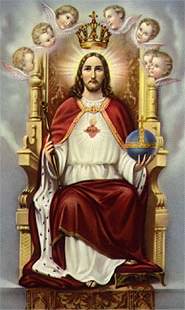
Friday, December 24, 2010
Peace of Christ

Saturday, December 11, 2010
The Hitchens-Blair Debate: Is Religion a Good Force in the World?

Monday, November 22, 2010
The Youth and The Church

Tuesday, November 9, 2010
Eastern Catholic Churches of the Middle East

Interfaith Encounter with Islamic and Hindu People


Friday, November 5, 2010
Greek Melkite Catholics?
Saturday, October 9, 2010
The Family - Part 3 - Sexuality
But more than that let's consider the following points:
1. According to recent neuroscientific research in 2006, humans are naturally endowed with a brain hormone called "Oxytocin" to help them bond and open their hearts for love. Not only it contributes to bonding between male and female, but also to bonding between mother and infant. Oxytocin contributes to increase in social collaboration and trust. Another hormone found in human brains is Vasopressin which can contribute to pair bonding thus encouraging monogomous lasting bonding between male and female. Love starts really at the natural level. We do not need to invent it. This tells us that humans are inherently created good and open to love without having to resort to Biblical sources or early tradition.
2. If humans are created good and open to love, then they will ideally propagate love to their offsprings and in their social environment, but without discounting the effects of genetic differentiation, rivalry and selfishness. Research in anthropology has shown that rivalry is mimetic or imitative. According to Rene Girard, if I admire another man and know that he loves the woman I love, his desire for this woman will be stronger because of me and he will become my rival. This probably explains why men fight each other and become violent over time. But the same imitative power is also found in imitating the good parents, leaders and saints who sacrifice themselves out of love for the sake of the other.
3. Just as much as sexual energy is powerful, self-control proves to be more powerful. This is the dictum of True Love Waits, a movement in America that seeks to encourage teenagers and young adults to commit sexual love to the bond of marriage alone (see http://www.lifeway/tlw) Self-control propagates through the formation of like-minded community of single young adults and helping them overcome the difficulties they face. In the Christian tradition, the formation of community is the responsibility of pastors, teachers, and the entire people of God. Giving them responsibilities within the parish is one way to make them feel they are part of the community.
4. If we want to extend ourselves through offsprings, there is one natural way: mating. But mating with multiple persons of the other gender not only breaks the exclusive natural bonding found by neuroscience, but also introduces the highly probable infections with transmitted sexual diseases which in turn affect the health of generations to come.
5. The idea of living by myself is scarecely possible. Humans have brains that help them organize themselves into families of man and woman in a natural way. This idea is psychologically applied to all cultures at all times regardless of religion and creed. That I can live by myself contradicts my drive for security, for I am insecure as long as I remain alone. In an urban society of individuals, who will take care of me when my parents have died and I am left alone, unless my spouse is there for me? This is why commitment to each other all life is required of both spouses in the marriage Mass or ceremony. This is why a good spouse is in pain when he/she loses the other. This is also why divorce is wrong.
6. In Christianity alone, and here is where I wish to draw more attention, the power of God is not His mighty deeds, His wisdom, or his eternal glory but His love. His love is what constitutes the Holy Trinity in One God. His love is what prompted Him to create the world and redeem it when sin entered the world. If love is recognized by theists and atheists alike to be the supreme moral value, then Christianity in the teaching and life of her founder is the answer to darkness. It is this love that precedes any sexual act. The definition of love is not pleasure but sacrifice for the other (my spouse) who is not an object of pleasure in the way passionate Hollywood pictures it. Love contains passion and emotion yet it transcends it. It contains commitment yet it transcends it - for love is the other. Nothing less.
Based on the above points combined, it is objectively evident why the Church considers premarital and extra-marital sexual activity to be wrong. The Church does not judge the sinner, yet she judges sin and encourages her children to avoid falling in it especially through prayers and fasting. In all things we need God's help for He said "Without me you can do nothing." Indeed He works through us.Saturday, September 25, 2010
The Family - Part 2 - Marriage

Tuesday, September 7, 2010
The Family - Part 1
A life that appears to have been a failure!
Thursday, September 2, 2010
Today's Question: Peace between Palestinians and Israelis
Saturday, August 28, 2010
Jospeh Jules Zerey on Faith
Thursday, August 19, 2010
A Mosque Near Ground Zero!
Saturday, July 17, 2010
A Man for All Seasons

Sunday, July 4, 2010
Robert Hanna on Martyrs

Thursday, June 24, 2010
Athanasius the Great

Thursday, May 27, 2010
True Freedom
Friday, May 21, 2010
Death in Light of the Holy Spirit

Friday, May 7, 2010
Death in Light of the Resurrection

Tuesday, April 20, 2010
The Way of the Resurrection: Imitation of Christ on the Cross and Saints
Wednesday, April 7, 2010
Christ’s Resurrection is Not without the Cross
Wednesday, March 31, 2010
Why Have You Abandoned Me?
Monday, February 1, 2010
Haiti - A contemporary story of Job
Today's Quote
"Behold I make all things new." (Revelation 21:5)

